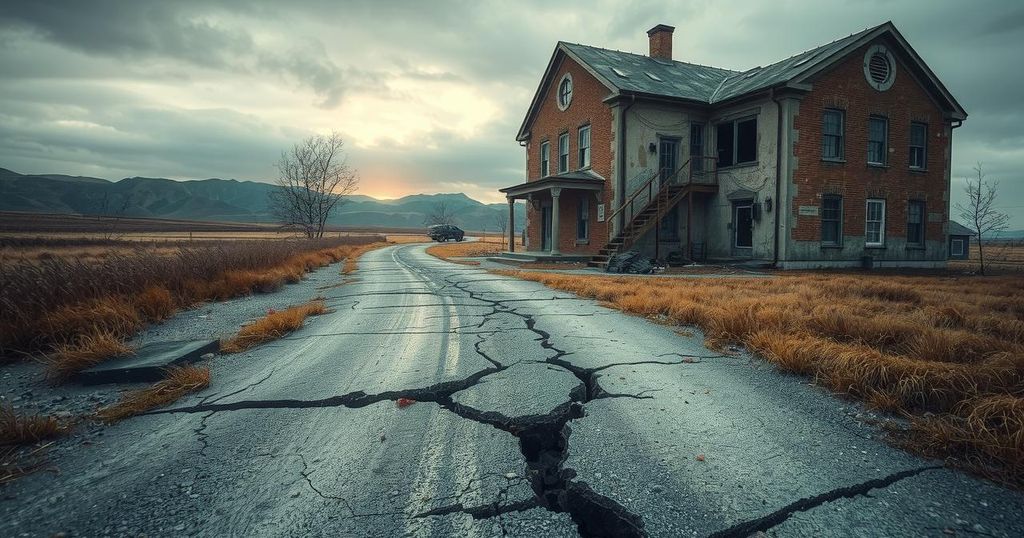Iran Faces Imminent Economic Catastrophe Amid Rising Poverty and Inflation

Iran is on the verge of an economic catastrophe, as soaring inflation, a collapsing currency, and rising poverty levels create widespread public dissatisfaction. Economic analyst Hamid Haji Esmaeili emphasizes that the nation is facing dire circumstances exacerbated by ineffective government policies and rampant corruption. Significant changes are needed to prevent worsening social unrest.
In a stark announcement from the state-run Arman Meli on February 12, Iran faces an imminent economic catastrophe due to soaring inflation, a plummeting currency, and increasing poverty among its populace. Experts caution that the nation’s economic crisis is exacerbating, with stagnant wages unable to meet skyrocketing living costs, thus fueling public discontent.
Economic analyst Hamid Haji Esmaeili warned of the deteriorating conditions, stating, “Over the past two decades, due to relentless economic pressures and sanctions, the economic condition of Iranian citizens has steadily deteriorated.” He further noted that systemic inefficiencies in resource distribution have intensified the economic crisis.
As the Iranian rial plummets to nearly 100,000 per U.S. dollar, the purchasing power of citizens has significantly diminished. Consequently, lower-income families struggle to afford essential goods, while government measures like cash handouts have been insufficient in alleviating poverty.
Esmaeili criticized the government’s reliance on direct cash subsidies, asserting they have become ineffective against soaring inflation. “For nearly two decades, direct cash subsidies have been the government’s main policy to support the people,” he lamented, emphasizing that these measures have been inadequate in countering the rising poverty rates.
Economic and social crises are burgeoning in 2024, including severe gas shortages that have caused blackouts, industrial halts, and business closures. Moreover, the depreciation of the rial has intensified the financial burdens faced by the working class, who are increasingly seeking government aid.
The number of people applying for financial assistance has surged seven to eight times over the past eight years, as reflected in the statistics from the Imam Khomeini Relief Foundation and the Welfare Organization. Currently, three million receive aid, while approximately eight million remain unassisted amidst dire financial straits.
Esmaeili highlighted the flaws in Iran’s wage-setting process, declaring the need for comprehensive reform. He pointed out that habitual 20% annual wage increases fail to address prevailing inflation, underscoring that sporadic financial assistance is insufficient for the deepening economic crisis.
Housing costs, particularly for renters, represent a significant financial burden on families. To mitigate this pressure, Esmaeili advocated for policies such as rent subsidies and direct assistance to lessen the economic strain.
Systemic corruption and inefficient governance contribute significantly to Iran’s economic crisis. Esmaeili stated, “The economy suffers from deeply entrenched corruption that has allowed wealth and opportunities to concentrate in the hands of a select few while leaving millions struggling,” calling for a restructuring of state economic policies.
Iran is facing a critical economic situation characterized by extreme inflation, currency devaluation, and increasing public poverty. Experts assert that government policies have failed to address the fundamental issues plaguing the economy and call for comprehensive reforms to improve living conditions. Without immediate and effective changes, the risk of social and political unrest is considerable.
Original Source: www.ncr-iran.org








